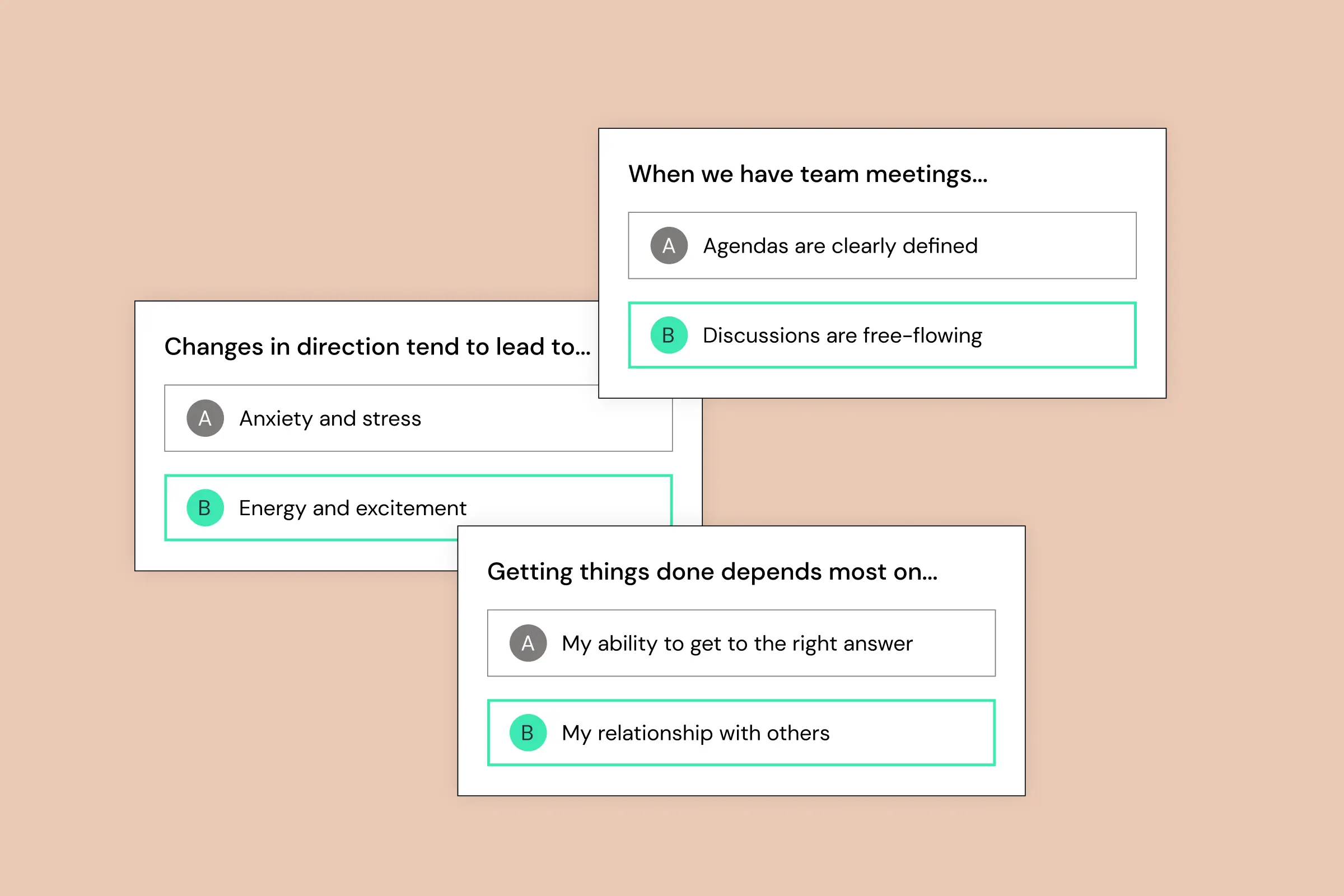Processing
How does your team evaluate information?
"Information is a beacon, a cudgel, an olive branch, a deterrent — all depending on who wields it and how." — Steven Levitt
We have more data, and more powerful analytical tools, than ever before. But all that raw potential doesn't amount to much without the people that are making sense of it. Processing boils down to how your team takes raw information (data) and turns it into insights that the group can use as an input into decision-making.
While every team has its own idiosyncrasies, its information processing style will fall into one of two archetypes.
Logical
teams rely on reams of data and rigorous analysis when interpreting information.
- The argument that carries the day tends to be the one that is most rigorously researched and supported by the facts.
- Everyone has a chance to inform the group’s thinking, so long as they back it up with the type of analysis the team likes to see.
- There's an emphasis on objectivity and a general skepticism of intuition or "gut feel." Maybe you've even heard your teammates say something to the effect of, "In God we trust. All others must bring data."
Learn about the 8
Logical
team types.
Environments where the data holds the key to the best path forward, e.g.,
- In sectors such as engineering, finance, or IT, where decisions must be precise and based on technical data, logical teams can excel by applying their rigorous analytical skills to solve complex problems.
- In situations involving complex variables, such as logistics planning, data-driven analysis allows for more team members to share in the challenge of understanding information.
- Constantly-changing environments, where people regularly change roles or move teams, benefit from a common set of analytical techniques and standards. This allows new team members to more easily "plug in" and begin contributing right away.
Relational
teams rely on specific, trusted individuals to tell them what’s going on and what matters.
- Your team has a habit of socializing its analysis ahead of key meetings and decision points, running it by key people for their input and buy-in. Emotional intelligence is an important ingredient in succeeding.
- Certain individuals on the team (not necessarily the team's leaders!) have a lot of sway over what the team does. You're often told to "check with so-and-so" before making a decision.
- There's a lot of emphasis on the value of expertise, organizational context, and relationship capital. It's better to have the team's respect than it is to always be "right."
Learn about the 8
Relational
team types.
Environments where a variety of different disciplines have to coexist, and where it's important to win over hearts (and not just minds), e.g.,
- Truly cross-functional environments, where a team contains subject matter experts from very different disciplines. In this situation it's necessary to trust the experts (vs. coming to a common, shared understanding).
- Low-data environments, like startups and new market ventures, call for a higher degree of intuition. When there's limited information to analyze, an overly analytical approach is a waste of time.
- Roles where building and maintaining relationships are critical, such as in sales, marketing, or customer service. Relational teams can leverage their strong interpersonal instincts to enhance client satisfaction and loyalty.


.png)




































